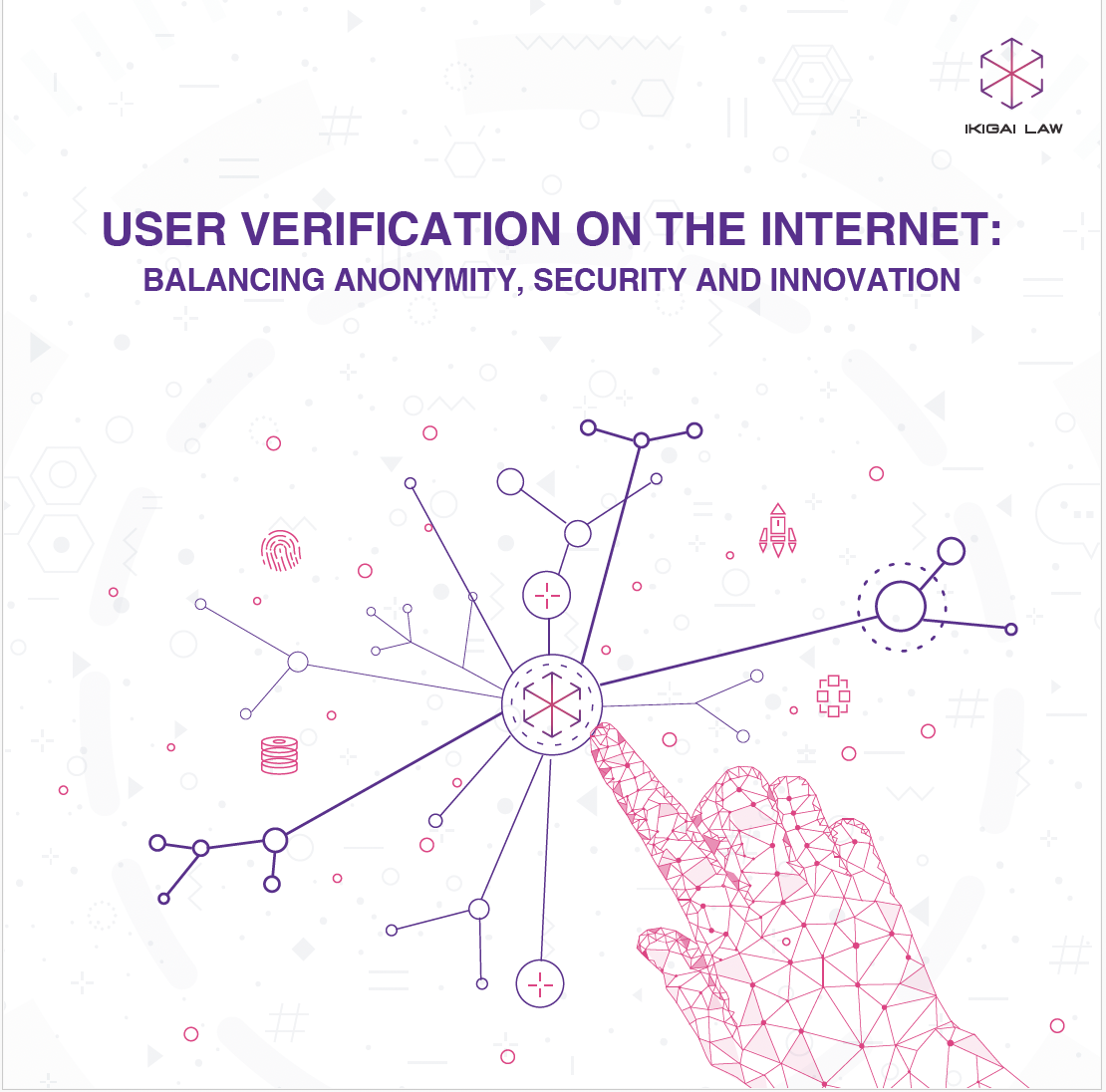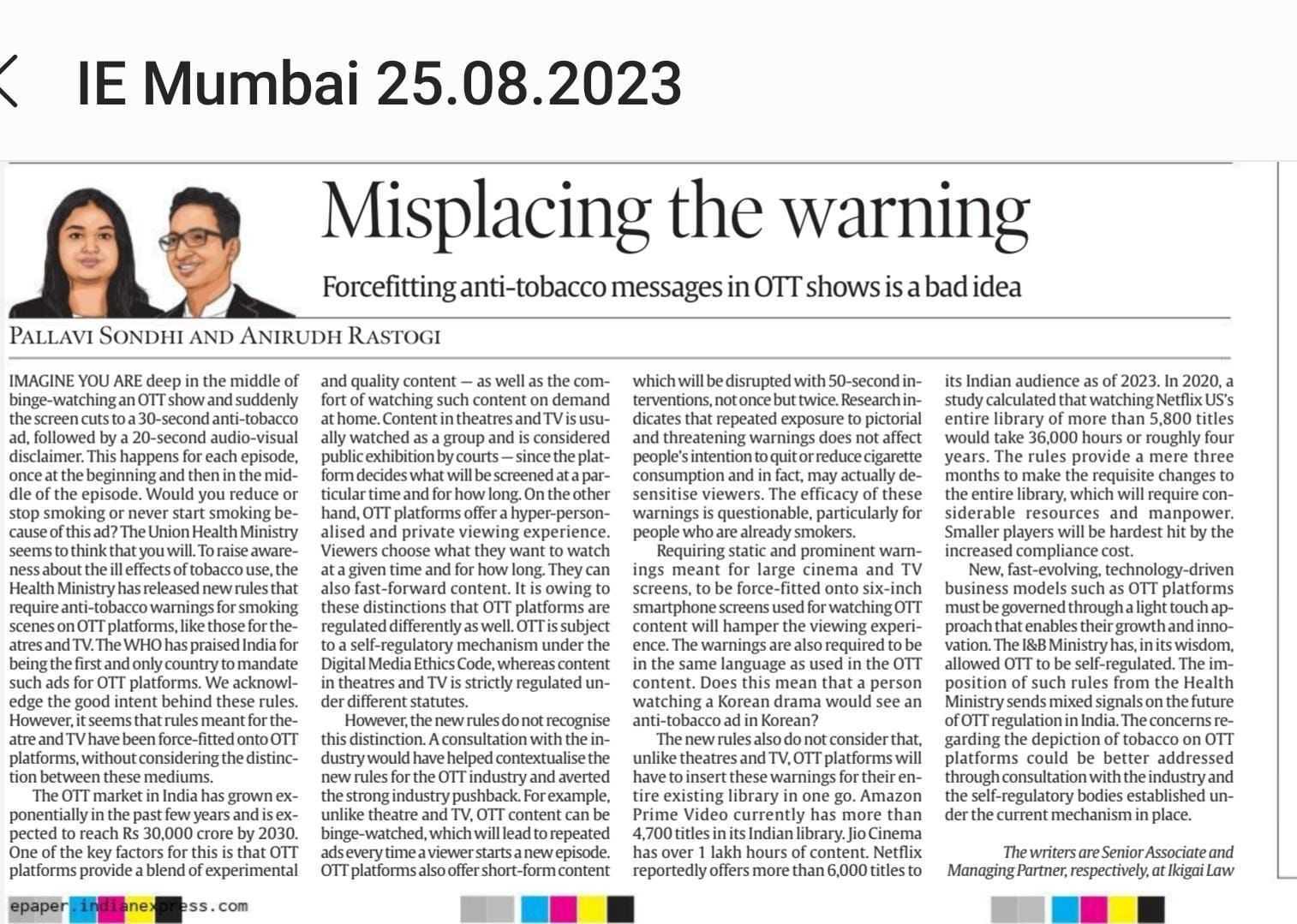- Preliminary
The Telecom Regulatory Authority of India (“TRAI”) is a statutory body that acts as the regulator of the telecommunications sector in India. It was set up by the government of India under section 3 of the Telecom Regulatory Authority of India Act, 1997 (“TRAI Act”). The TRAI concerns itself with regulating telecom tariffs, quality of telecom services, spectrum licensing, internet and broadband services, and TV and radio broadcasting, amongst many other telecom products and services in India. One of the prime objectives of the TRAI is to “provide a fair and transparent policy environment which promotes a level playing field and facilitates fair competition.” In line with this objective, the TRAI often issues regulations, orders and directives to deal with issues that concern the Indian telecommunications sector. The TRAI also conducts public stakeholder consultations by publishing consultation papers and crowdsourcing comments and counter comments on the papers. It uses these stakeholder comments to shape its final recommendations on national telecom issues. These recommendations are issued either suo motu or on the central government’s request. The TRAI Act requires the central government to seek the TRAI’s recommendations if a new license is to be issued to a service provider, insofar as the need and timing of a new service provider and the terms and conditions of the license to be granted are concerned. However, these recommendations are not binding on the central government.
Public stakeholder consultations allow non-governmental bodies like academic institutions, policy organisations, private companies and civil society organisations to be a part of the government’s decision-making process. This makes the decision-making process comprehensive, transparent and all inclusive. Given the importance of these consultations, Vihang Jumle, associate at Ikigai Law, undertook a project to study instances where stakeholders were able to significantly influence TRAI’s views on an issue relating to internet services through the public consultation process. This blog post details the scope of this project and the methodology used to study the TRAI’s consultation papers. It also provides an outline of the upcoming blogs.
2. Scope
The project focuses on consultations carried out by the TRAI for the period between 26 September 2014 to 26 September 2019 to align it with the tenure of the National Democratic Alliance – I government. Within this period, the TRAI released a total of 110 consultation papers (this figure includes both closed[1] and on-going[2] consultations). Of these 110 consultation papers, 13 consultation papers touched upon issues relevant to internet services, i.e., – (i) cloud computing, (ii) over-the-top services, (iii) net neutrality and (iv) data governance. These papers are:
A. On cloud computing:
i. Consulting note on model for nation-wide interoperable and scalable public wi-fi networks.
ii. Consulting paper on proliferation of broadband through public wi-fi networks.
iii. Consulting paper on cloud computing.
iv. Consulting paper on promoting local telecom equipment manufacturing.
B. On over-the-top services:
i. Consulting paper on internet telephony.
ii. Consulting paper on regulatory framework for over-the-top communication services.
C. On net-neutrality:
i. Consultation paper on implementation model for BharatNet.
ii. Consulting paper on net neutrality.
iii. Pre-consultation on net neutrality.
D. On data governance:
i. Consulting paper on free data.
ii. Consulting paper on privacy, security and ownership of data in the telecom sector.
iii. Consulting paper on differential pricing for data services.
E. The consultation paper on inputs for the formation of draft national telecom policy 2018 can be classified under all categories.
3. Methodology
TRAI has issued recommendations for 8 out of the 13 consultation papers (collectively referred to as “Closed consultation papers”) listed above. These consultation papers are:
A. Consulting paper on privacy, security and ownership of data in the telecom sector.
B. Consulting paper on internet telephony.
C. Consulting paper on proliferation of broadband through public wi-fi networks.
D. Consulting paper on promoting local telecom equipment manufacturing.
E. Consultation on inputs for formation of draft national telecom policy 2018.
F. Consultation paper on implementation model for BharatNet.
G. Consulting paper on cloud computing.
H. Consulting paper on net neutrality.
These 8 Closed consultation papers were qualitatively compared to identify instances where the recommendations issued by the TRAI differed from its original stance in its consultation papers. For example, instances where a consultation paper has stated that “the world is round” versus where the corresponding recommendation paper has stated that “the world is flat” were identified. Stakeholder comments to Closed consultation papers were thoroughly studied. Only those stakeholders who advocated ideas similar to those presented by the TRAI in its recommendation papers were identified as ‘relevant stakeholders’ for the study. Business interests of such stakeholders were studied to understand why they may have advocated for a certain policy change through their comments. We also attempted to understand why the TRAI may have changed its stance on a certain issue in its recommendations.
Out of the 8 Closed consultation papers, it was observed that only 1 consultation paper presented suggestions that differed from those presented in the corresponding recommendation paper. This paper is the ‘Consultation on inputs for formation of draft National Telecom Policy 2018’.
TRAI presented similar ideas in the consultation paper and its corresponding recommendation paper in the remaining 7 closed consultation papers.
4. What’s next?
The upcoming blog post (second in this series) will present a description of the 7 consultation papers’ key themes. The blog post will describe how the TRAI presented same ideas within these 7 closed consultation papers. The next blog post (third in this series) will present an analysis of the ‘consultation paper on the input for the formulation of the draft national telecom policy 2018’. TRAI presented numerous conflicting ideas in this consultation paper and its recommendation and the blog post will describe which stakeholders may have influenced the TRAI on changing its stance and why they may have done so.
(Authored
by Vihang Jumle, Associate, with inputs from Tuhina Joshi, Policy Associate at
Ikigai Law.)
[1] Closed consultations refer to those consultation papers whose corresponding recommendation papers have been published by the TRAI.
[2] On-going consultations refer to those consultation papers whose corresponding recommendation papers are yet to be released by the TRAI.










